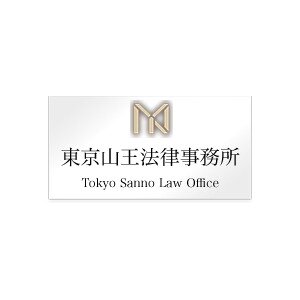Best Immigration Lawyers in Japan
Share your needs with us, get contacted by law firms.
Free. Takes 2 min.
Or refine your search by selecting a city:
List of the best lawyers in Japan
About Immigration Law in Japan
Immigration law in Japan governs the movement of people into the country, including the conditions, duration, and nature of their stay. Japan's approach to immigration is known for its stringent policies and procedures as the country balances economic needs and societal considerations with careful control over immigrant entries. While traditionally Japan has had a relatively low foreign population compared to other developed nations, recent years have seen a gradual opening to skilled foreign workers, reflecting demographic challenges such as an aging population and low birth rates.
Why You May Need a Lawyer
Seeking legal advice from a lawyer specializing in immigration can be essential for several reasons:
- Application Complexity: Navigating the visa application process can be complex, with various categories and requirements.
- Legal Representation: If you face deportation or legal challenges related to your immigration status, a lawyer can provide representation and guidance.
- Work and Residency Issues: Lawyers can assist in matters related to work permits, extensions, and permanent residency applications.
- Family Reunification: Guidance on the legal process to bring family members to Japan, ensuring compliance with the law.
- Business Investment: Legal advice is crucial for entrepreneurs and investors seeking to establish or expand business operations in Japan.
Local Laws Overview
Here are key aspects of Japanese immigration laws relevant today:
- Visa Categories: Japan offers a variety of visa types, including work visas, student visas, family visas, and tourist visas. Each category has specific eligibility requirements.
- Residency Status: Foreign nationals may apply for permanent residency under certain conditions, offering greater stability and rights in Japan.
- Compliance and Reporting: Foreign residents and employers in Japan must comply with strict reporting and administrative requirements to avoid penalties.
- Citizenship: Naturalization is a lengthy process with strict conditions, requiring thorough understanding and preparation.
Frequently Asked Questions
What are the general requirements for obtaining a visa in Japan?
Visa requirements vary by type but generally include a valid passport, application forms, photographs, and proof of purpose and financial stability. Additional documents may be required based on visa type.
Can I work in Japan on a tourist visa?
No, working on a tourist visa is strictly prohibited. A work visa or an appropriate residence status is required to work legally in Japan.
How can I apply for permanent residency in Japan?
Permanent residency applications typically require a long-term visa, continuous residence in Japan for several years, stable job and income, and strong language skills, among other criteria.
What should I do if my visa is about to expire?
Apply for an extension in advance of expiration, typically 3 months prior. Ensure all required documentation is submitted, as overstaying can lead to penalties or deportation.
Can I change my visa status while in Japan?
Yes, status changes are possible if you meet the eligibility for the new visa category. Applications must be submitted to immigration authorities for review and approval.
How can family members join me in Japan?
Family members may apply for dependent or family reunion visas. Applications usually require proof of relationship, sufficient financial support, and proper documentation.
What is the process for hiring foreign workers in Japan?
Employers must ensure that foreign workers have appropriate work visas. The hiring process includes obtaining a Certificate of Eligibility, which precedes the visa application.
Are there language requirements for immigration processes?
While initial visa requirements may not stipulate language proficiency, permanent residency and naturalization often require Japanese language skills to demonstrate integration capability.
What happens if I violate immigration laws in Japan?
Violations can lead to severe consequences, such as fines, detention, deportation, or a ban on reentry. It is crucial to remain compliant with all regulations.
How can I apply for Japanese citizenship?
Naturalization typically requires 5 years of residence, stable income, clean criminal record, and renouncing current citizenship, among other stringent requirements.
Additional Resources
Several resources can assist with immigration issues in Japan:
- Ministry of Justice: Key legislative body providing official information on immigration procedures.
- Japan Immigration Services Agency: Governs immigration-related services including visa applications, extensions, and replacements.
- Embassies and Consulates: Where to seek further assistance and advice on international and visa-specific issues.
- Local Legal Aid: Associations and lawyers specializing in immigration law offering consultative services.
- NGOs: Various non-governmental organizations provide support to foreign residents and advice on legal rights.
Next Steps
If you conclude that legal assistance is necessary, here’s what you should do:
- Research: Look for experienced and reputable immigration lawyers or services familiar with Japanese law.
- Consultation: Schedule a consultation to discuss your specific needs and explore potential solutions.
- Documentation: Compile all necessary documents and personal information pertinent to your immigration issue.
- Follow Legal Guidance: Follow any advice or guidance provided by your legal counsel for the best outcome in your situation.
Lawzana helps you find the best lawyers and law firms in Japan through a curated and pre-screened list of qualified legal professionals. Our platform offers rankings and detailed profiles of attorneys and law firms, allowing you to compare based on practice areas, including Immigration, experience, and client feedback.
Each profile includes a description of the firm's areas of practice, client reviews, team members and partners, year of establishment, spoken languages, office locations, contact information, social media presence, and any published articles or resources. Most firms on our platform speak English and are experienced in both local and international legal matters.
Get a quote from top-rated law firms in Japan — quickly, securely, and without unnecessary hassle.
Disclaimer:
The information provided on this page is for general informational purposes only and does not constitute legal advice. While we strive to ensure the accuracy and relevance of the content, legal information may change over time, and interpretations of the law can vary. You should always consult with a qualified legal professional for advice specific to your situation.
We disclaim all liability for actions taken or not taken based on the content of this page. If you believe any information is incorrect or outdated, please contact us, and we will review and update it where appropriate.
Browse immigration law firms by service in Japan
Japan Attorneys in related practice areas.
Browse immigration law firms by city in Japan
Refine your search by selecting a city.















